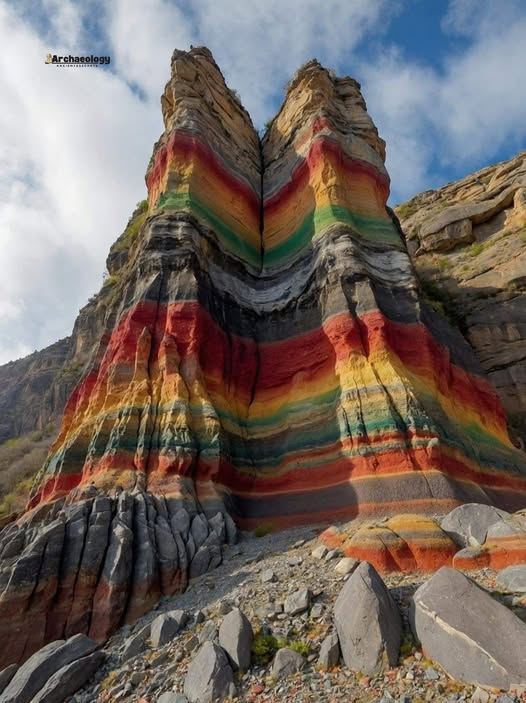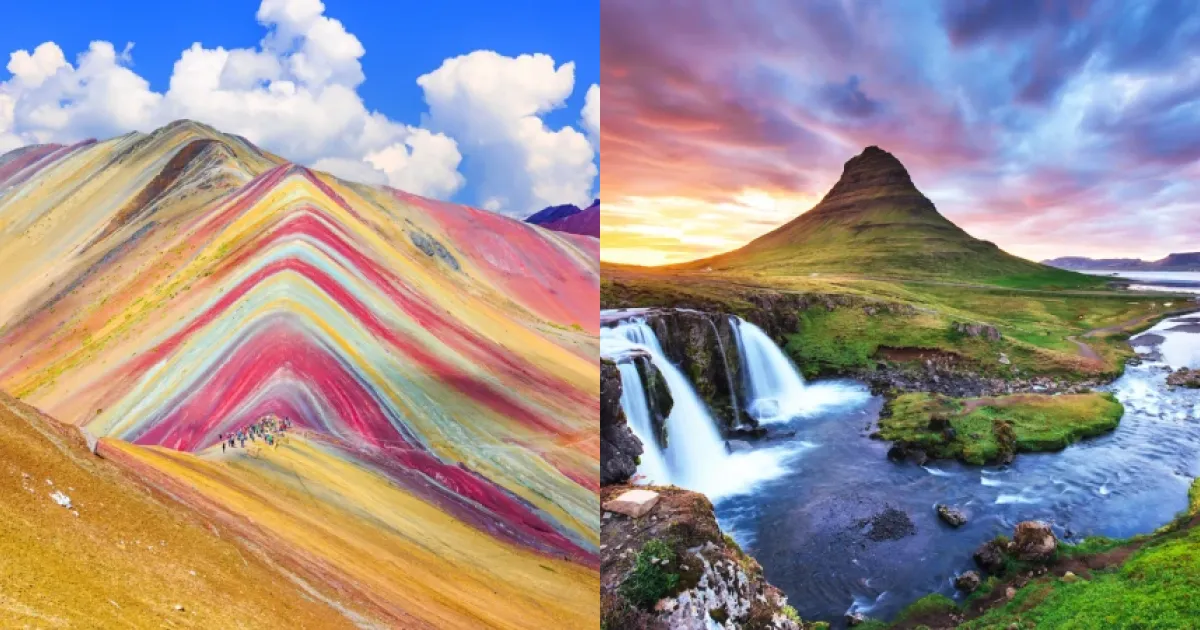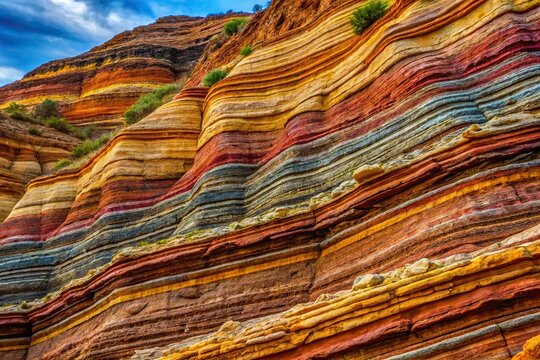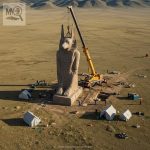The Rainbow Mountains of Iran—Nature’s Painted Masterpiece in the Alborz Range

Tucked within the rugged landscapes of the Alborz Mountains near Mahneshan, the Rainbow Mountains of Iran stand as one of the country’s most breathtaking natural wonders. Stretching in colorful layers of red, yellow, green, and black, these striking formations look almost surreal—as if nature herself painted the cliffs with bold strokes of pigment. Yet behind their beauty lies a story written over 15 to 20 million years, a geological saga that began during the Miocene epoch.

These vivid colors are the result of sedimentary deposits laid down millions of years ago when ancient seas and rivers spread minerals across the land. Over time, tectonic forces lifted and folded these layers, exposing them to the elements. The mountains’ hues reveal their chemistry: deep reds from iron oxides, vibrant greens from copper minerals, yellows from sulfur compounds, and dark streaks from organic matter and volcanic influence. Erosion and weathering sculpted these vertical cliffs, creating the dramatic striped effect that now captivates geologists, travelers, and photographers alike.
For scientists, the Rainbow Mountains serve as a natural archive of Earth’s dynamic history. Each band of color marks a different chapter in geological time, offering insights into ancient climates, shifting seas, and tectonic upheavals. Walking among these cliffs is like flipping through the pages of a planetary diary, where stone itself records the forces that shaped our world.

But the significance of the Rainbow Mountains is not only scientific—it is also deeply cultural and spiritual. For local communities, these formations symbolize the eternal bond between earth and sky. The colors are seen as more than minerals; they are living reminders of harmony, balance, and the cycles of nature. Folklore often describes the mountains as sacred guardians, timeless witnesses to the rise and fall of civilizations. Even today, they inspire awe and reverence, connecting people to both the land beneath their feet and the heavens above.
Tourism in the region has grown as word of the Rainbow Mountains spreads. Hikers, adventurers, and cultural travelers flock to Mahneshan to witness the surreal scenery firsthand. Sunrise and sunset transform the cliffs into glowing canvases, when the mineral bands seem to shimmer with light. Photographers describe it as one of the most otherworldly landscapes in Iran, rivaling the famous Zhangye Danxia landforms of China or the Rainbow Range of Peru. Yet the Iranian Rainbow Mountains remain uniquely their own—less crowded, more pristine, and steeped in both geology and heritage.

Ultimately, the Rainbow Mountains of Iran embody the profound beauty of Earth’s processes—how minerals, time, and tectonic power combine to create natural art. They remind us that landscapes are not static, but living stories, shaped by forces both violent and patient. Standing before these cliffs, one feels both small and infinite, humbled by the knowledge that what looks like a painting is, in truth, the canvas of time itself.
#RainbowMountains #IranTravel #AlborzRange #GeologicalWonder #NatureAndCulture










